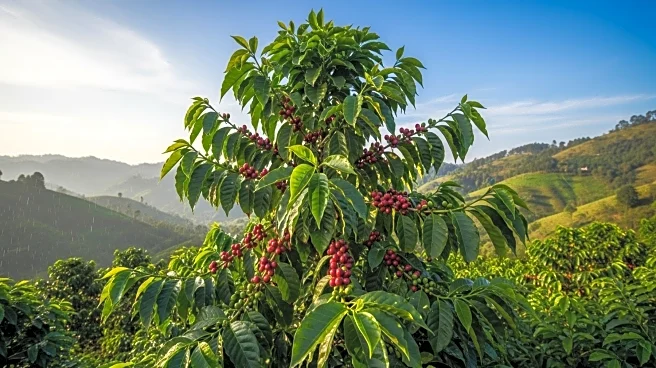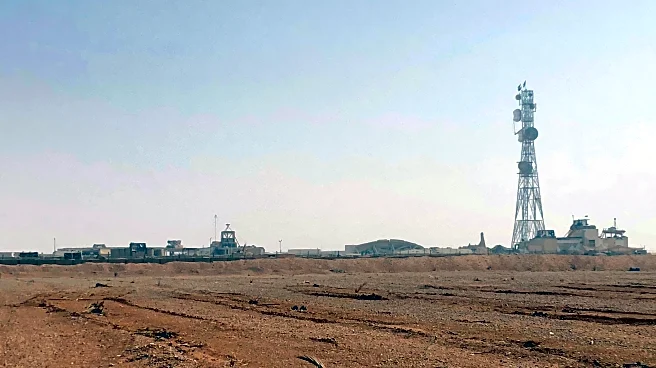What's Happening?
The coffee industry is grappling with significant challenges due to climate change, which is expected to reduce the land suitable for coffee farming by 50% by 2050. This reduction is primarily affecting major coffee-producing countries like Brazil and Vietnam. The industry is also facing labor shortages as financial pressures and harsh working conditions deter younger generations from continuing in the business. Additionally, the Trump administration's tariffs have compounded these challenges by threatening sales. Experts highlight that the coffee industry cannot continue with its current practices, as the areas where coffee can reliably grow are shrinking, and the labor force is dwindling.
Why It's Important?
The challenges facing the coffee industry have broad implications for global coffee supply and pricing. As climate change reduces suitable farming areas, coffee could become more expensive and its taste could change. This situation affects not only coffee producers but also consumers worldwide, particularly in the U.S., where a significant portion of coffee is imported from affected regions. The industry's reliance on a shrinking labor force and the impact of international tariffs further complicate the economic landscape for coffee growers. These factors could lead to increased costs for consumers and potential shifts in coffee availability and quality.
What's Next?
To mitigate the effects of climate change, coffee farmers may need to adopt new practices, such as planting shade trees and diversifying crops, although these solutions require investment that many cannot afford. Researchers are exploring alternative coffee species like stenophylla, which can tolerate higher temperatures, and robusta, which is gaining popularity due to its climate resilience. The industry may also see innovations in synthetic coffee production. As these developments unfold, coffee drinkers may need to adjust to new flavors and varieties, while the industry seeks sustainable solutions to its challenges.
Beyond the Headlines
The coffee industry's current predicament is rooted in historical issues of slavery and colonialism, where coffee production was established at the expense of local populations. Today, the international market's pricing mechanisms often leave farmers with insufficient profits, perpetuating a cycle of poverty. As the industry faces climate and economic pressures, there is a growing need to address these systemic issues to ensure a fair and sustainable future for coffee producers.











